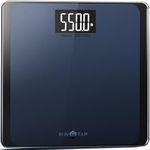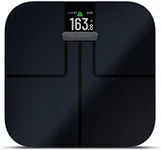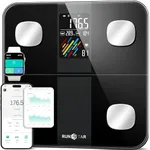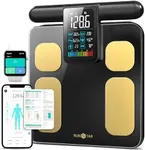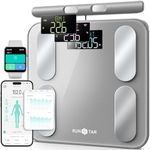Best Smart Scales
From leading brands and best sellers available on the web.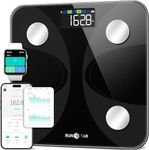
runstar
15%OFF
Runstar Smart Scale for Body Weight and Fat Percentage, High Accuracy Digital Bathroom Scale FSA or HSA Eligible with LCD Display for BMI 13 Body Composition Analyzer Sync with Fitness App

runstar
35%OFF
Runstar Smart Scale for Body Weight and Fat Percentage, High Accuracy Digital Bathroom Scale with Large Display for BMI Heart Rate 15 Body Composition Analyzer Sync with Fitness App 400lb
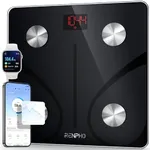
RENPHO
RENPHO Body Fat Scale, Smart Scale for Body Weight, BMI Digital Bathroom Weight Scale, Body Measurements with Smartphone App sync with Bluetooth, 400 lbs - Black, Elis 1
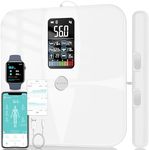
Lepulse
11%OFF
Body Fat Scale, Lepulse 8 Electrodes Weighing Scale for Body Weight Fat Percentage, Large Display Bathroom Scale Digital, Precision Smart Scale & Body Analyzer, 20 Body Composition Scale with Report
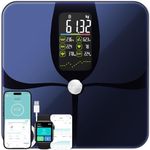
Lepulse
10%OFF
Body Fat Scale, Lepulse Weight Scale Large Display, Digital Bathroom Scale for Body Weight BMI Heart Rate, Balance Poids Smart Scale High Accurate, 22 Body Composition Scale with Fitness App, Black

eufy
eufy Smart Scale P2 Pro, Digital Bathroom Scale with Wi-Fi Bluetooth, 16 Measurements Including Weight, Heart Rate, Body Fat, BMI, Muscle & Bone Mass, 3D Virtual Body Mode, 50 g/0.1 lb High Accuracy
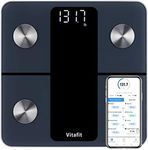
Vitafit
10%OFF
Vitafit Smart Bathroom Scale Body Weight, Weight Scale Professional Factory Since 2001, App Sync 13 Body Composition Including BMI, Body Fat and Muscle, 400lb in 0.1lb Precision, White LED, Black
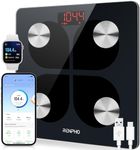
RENPHO
29%OFF
RENPHO Rechargeable Bluetooth Body Fat Scale, Elis 1 Smart Bathroom Digital Weight Scale with Smartphone App, Body Composition Monitor for Body Fat, BMI, Bone Mass, Weight, 396 lbs Black
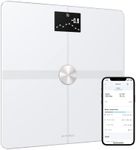
Withings
Withings Body+ - Digital Wi-Fi Smart Scale with Automatic Smartphone App Sync, Full Body Composition Including, Body Fat, BMI, Water Percentage, Muscle & Bone Mass, with Pregnancy Tracker & Baby Mode
